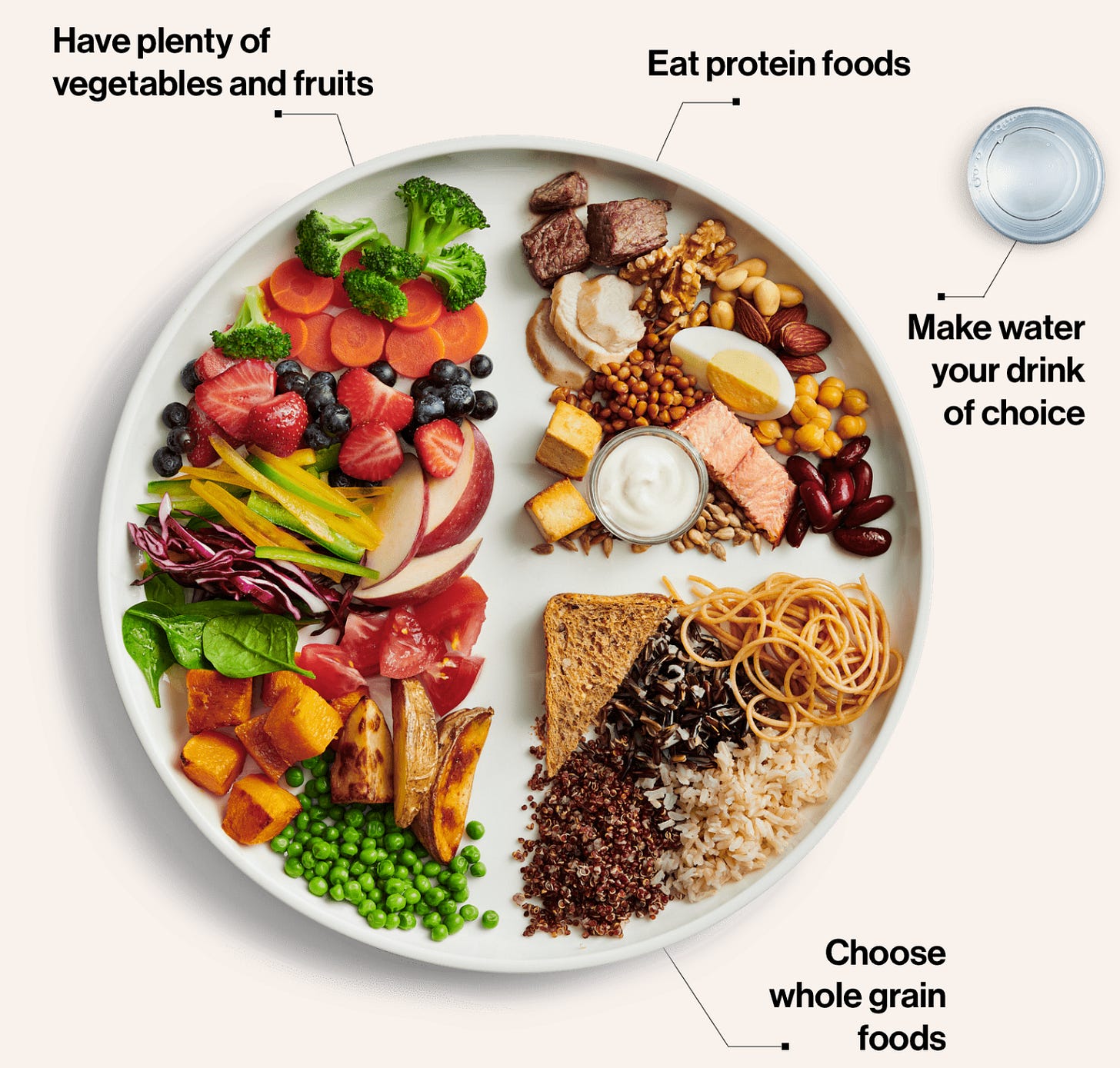The 6 Pillars of Healthy Aging - Evidence Based & Vetted
A Practical Guide to Staying Healthy in Your 30s and 40s and preventing all the common chronic diseases of modern society in your later decades.
November 18th, 2025
Welcome to the Healthy Aging Newsletter, a free publication translating trustworthy medical research into simple habits to age well, free of chronic disease. I’m Dr. Ashori, a family medicine doctor turned health coach.
These are healthy aging pills I prescribe patients:
Metabolic health
Stress management
Recovery
Nutrition
Activity
Immune health
Medications and surgery don’t make it in this list. Not GLP1s, not statins, not hyperbaric oxygen. But this list will help prevent the first heart attack, that first stroke, and, according to evidence, decrease the risk of cancer.
Letting The Body Heal & Repair
The human body is remarkably good at taking care of itself, at healing. It repairs, adapts, and stays in balance. But in today’s world, we’re facing environmental toxins, processed foods, and chronic stress and poor sleep that can push us off course.
To age healthy in this modern world I’ve developed these healthy pillar for my clients to age well, avoid chronic diseases, and minimize the exposure to unnecessary testing or treatments.
Before you dive into these 6 pillars ask yourself:
How do you define ‘health’?
What are your health goals?
What are you doing to ensure you enjoy this health you envision?
1. Metabolic & Heart = Cardiometabolic
Cardiometabolic health is how we prevent the common diseases such as diabetes, cardiovascular disease, dementia, cancer, and degenerative conditions like osteoarthritis.
My goal as a physician is to help my patients age well, feel their best, avoid chronic diseases, and avoid medications or surgeries. That’s my definition of health.
-Mohammad Ashori MD
Our cells are designed to extract every bit of energy they can from food. But when glucose is chronically high, the system becomes strained, and damage follows. Too little and … well, except in advanced cancer and cachexia, we don’t see much calorie deficiency.
Each of us needs a unique balance of movement, calorie consumption, and metabolic speed. Some of us are predisposed to conditions like diabetes while others may deal with high blood pressure which damages the small blood vessels.
Most people in their 30s and 40s aren’t thinking about heart disease yet, but subtle shifts in blood sugar and blood pressure start early. This is the best time to improve cardiometabolic health.
Consider: Get your metabolic health assessed by a competent clinician. If there are problems, come up with 3 steps to address it over the next 6 months. Then troubleshoot. Fasting glucose, insulin, liver ALT, and Tg/HDL-C ratios are a good place to start.
2. Mindfulness & Stress Management
Our species hasn’t had a chance to evolve with the new constraints and pressures of modern society. Replying to texts on time, balancing investment accounts, dealing with constant work stimuli, noise, air pollution, traffic, and managing health fears - all new, all stressful.
Mindfulness is the intentional process of aligning what’s happening in the subconscious with what’s really happening in the world around us. Our partner being mad at us might seem like the end of the world, but are we really fearing?
A mindful approach to life helps us manage our stress, coping with it without the negative impacts. The stress often remains but how we experience is completely different.
Even 5 minutes of quiet reflection each day can reset your nervous system. Start small. Consistency matters more than perfection.
Consider: Whatever your daily routine is now, add in a few moments of deep breathing and reflecting. Some awareness of your thoughts and feelings is all that’s needed to practice mindfulness. Drops your BP by about 10 points.
3. Sleep & Recovery
Sleep and recovery aren't just for the overworked or athlete. Our bodies repair damage, balance hormones, and reset the brain with proper downtime. Without them, even a mild stressor can take a bigger toll.
You need even more downtime and sleep if you deal with:
Taxing job
Engage in rigorous exercise
Lots responsibilities
Long to-do list
Deal with pain
Emotional suffering
Worry & anxiety
We recover when we have mental & emotional downtime. And sleep restores when it’s protected and lasts long enough to balance our chemicals in the body.
Consider: Giving your body more time to recover and rest, especially when you’ve done a lot strenuous exercise or gone through emotionally turbulent times. Tax season? Breakup?
4. Nutrition & Digestion
Nutrition is about feeding the cells of the body and from a simplistic point of view, it’s about macros, minerals, and vitamins. But in reality it’s more complicated and those who follow a diet in the following order seem to do quite well:
Grains & seeds (40%)
Vegetables & fruits (30%)
Meats (20%)
Dairy (10%)
Of course, this is simplistic and assumes you don’t have any existing medical conditions. What it doesn’t include is fried tortilla chips, Twinkies, Kit-Kat, Pepsi, or Protein Shakes. Not that these are dangerous, but it’s hard to fit them into a finite number of calories in a given day in a finite intestinal space.
Consider: Think of your plate like this, about half should be grains, seeds, or vegetables. Add some colorful fruits, a portion of protein, and a small serving of dairy if it agrees with you.
5. Activity & Movement
Moving is the key to all the categories that fall under exercise. Going for a walk every day, doing the occasional physical labor at home or at work, and stretching the joints once a week will get you 90% of the way there.
Our world is rapidly becoming more sedentary. We can get into our car, never climb stairs, never raise our heart rates, get into bed, and repeat.
Look, even if this is your life and all other parameters from the pillars of healthy aging are checked off, you’ll likely be fine. But you’ll feel better in your body if you use your joints, muscles, and bones.
Consider: Start or end your day with a walk, whether it’s in circles around your apartment while listening to music or around the park.
6. Immune Health & Inflammation
Immunity means being more resistant to infections and recovering faster. Even more important (more upstream) than preventing exposure is helping our immune system become resilient to infections.
I’m not talking about Vit D supplementation or Elderberry Extract. It’s more about getting enough sleep, staying hydrated, eating nutritious foods, and moving the body. That helps the immune system perform at its best.
Inflammation is an incredibly important part of healing. In fact, when we blunt inflammation during healing we run into problems like bones not mending, and joints not recovering. Inflammation should happen in bursts and then disappear. When we have low, ongoing, chronic inflammation we run into other problems.
Consider: We have some blood tests for measuring inflammation in the research setting but nothing that’s terribly accurate to look for inflammation in the average person. There are some signs worth paying attention to when considering inflammation.
If you’re ready to build a personal plan around these pillars, I offer one-on-one coaching and resources to help you age well, prevent disease, and stay on track. Learn more at www.drashori.com.
The information in this podcast is for general education. It is not medical advice. Listening does not create a patient–doctor relationship with me. I care about each listener and want you to receive care that fits your life and medical needs. Always speak with your own licensed clinician before starting, stopping, or changing any health plan, medication, or routine.





Thank you for this excellent summary of the road map to healthy aging. I fear you are preaching to the choir and most Americans would prefer a pill (or many pills) to solve their health problems and do not want to do most of these things. But I respect your efforts to reach more people, and I hope you do!
The recovery section realy resonates with me. Most people underestimate how much thier body needs proper downtime, especially during stresful periods like tax season or after intense workouts. Its interesting how you connect mental and emotional rest with physical recovery.